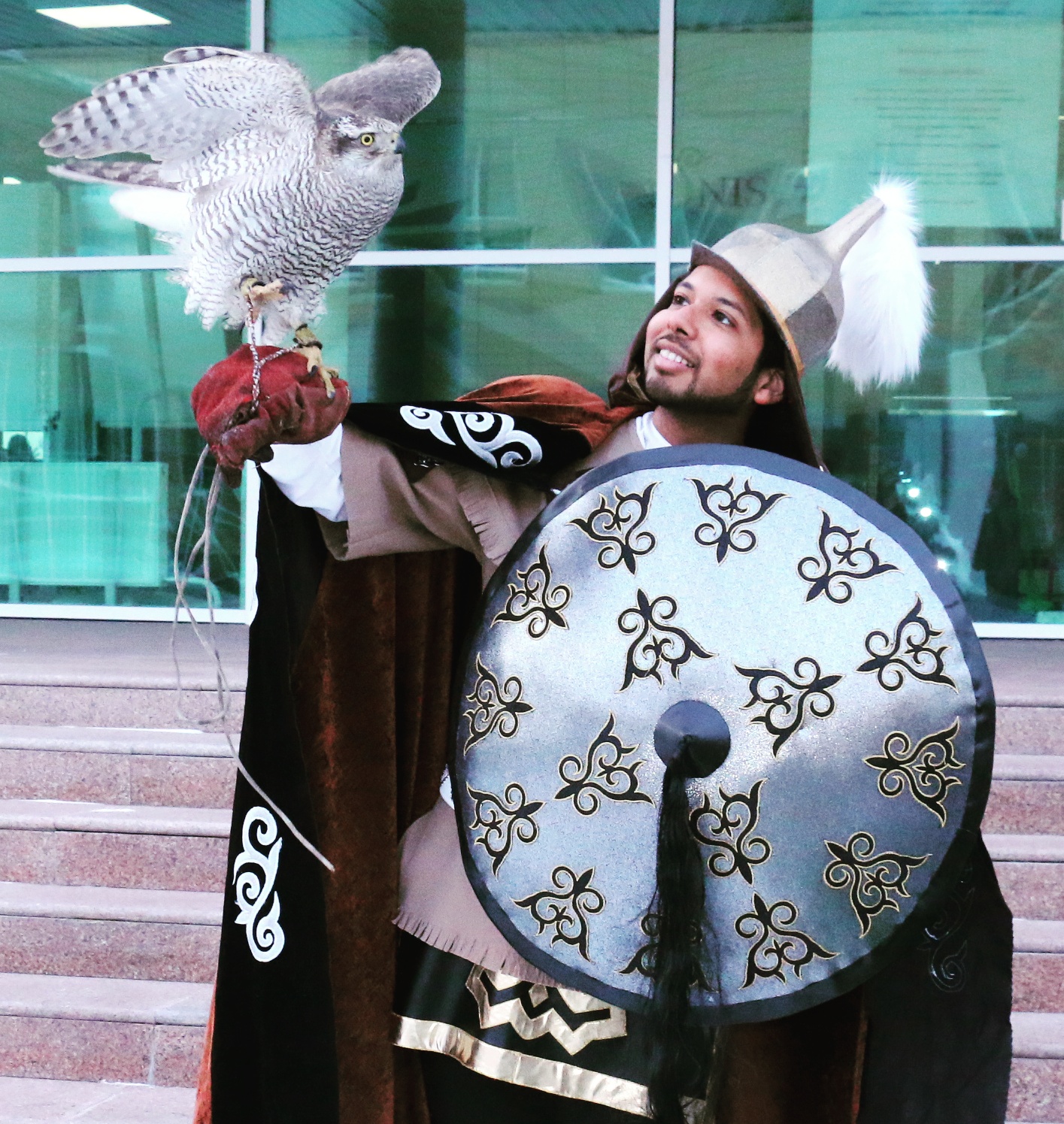- November 16, 2021
Sami Khan, PhD Candidate in Mechanical Engineering, taught the “Learn 2 Love” (L2L) Chemistry course in Kazakhstan as part of the MISTI Global Teaching Labs (GTL) program in 2017.
'LEARN 2 LOVE' CHEMISTRY
Sami Khan spent three weeks over IAP at the Nazarbayev Intellectual School in Karaganda in Central Kazakhstan. “Chemistry is an inseparable component of our everyday life. Be it in the digestion of the food we eat, or in the clothes we wear, or in the air we breathe: chemistry impacts us daily,” he says.
He explained that the objective of the course was to get students passionate about common everyday phenomena associated with chemistry and the exciting new research directions in chemistry. Sami believes that when students relate to these phenomena, they will naturally appreciate the fundamentals of chemistry and develop an intrinsic liking for the subject.
Therefore, he framed a few learning objectives for his course: 1) learn what the fundamental building blocks of chemistry are and how chemistry exists in every walk of life; 2) how chemistry plays a role in the food we eat, the water we drink and the air we breathe; 3) how the diverse life forms around us are in fact subtle manipulations of biochemistry.
EXPERIENCE HE WILL NEVER FORGET
Before going to Kazakhstan, Sami watched “Eagle Huntress,” a documentary which tells a story of a 13-year-old girl who became the first female eagle hunter. Sami said he was very eager to wear traditional Kazakh clothes and take a photo with a bird of prey on his hand. However, despite a lot of efforts, he was unable to find any place where he could have such an experience.
“Then on my penultimate day, local teachers and students at our school pledged that they would do everything possible to find a local hunter. They went out of their way to call all their contacts and find someone who could fulfill this experience for me. And finally after many hours of phone calls, one local hunter was able to travel to the school with his beloved falcon Amira. My students hurriedly dressed me in a traditional Kazakh costume and finally I was able to take my dream photo!”
When Sami thanked his students and co-teachers for making this happen, one of them replied, “Of course, you are not just our guest but part of our family!” This really touched him and proved the real hospitability of the Kazakh people.
RECOMMENDATIONS TO FUTURE GTL-ERS IN KAZAKHSTAN
Sami admits that it is very important to adapt to local customs and traditions while working in a different country and be very respectful to your supervisors and co-workers.
While many aspects of the work culture were similar to the U.S. where freedom of expression and originality were greatly valued, some things were quite different. For example, the lack of certainty in a planned schedule and sudden, unpredictable changes with very short notice were commonplace in Kazakhstan.
“I would greatly recommend being prepared for the unknown and for sudden changes in a structured plan. Try not to get frustrated and be very polite with your Kazakh co-workers,” Sami says. He points to the importance of accepting complications with a positive attitude.
Sami also found the language barrier quite challenging. “I do not speak Russian so I had to resort to English or use Google Translate wherever possible. This sometimes had unintended consequences.”
For one of his lab demonstrations, Sami had requested assistance from a local lab technician who did not speak English too well. When she tried to help him with the demonstration, Sami typed in Google Translate, “Thank you for your help, I can manage this independently now” – which then wrongly translated in Russian to something along the lines of “please leave me alone.”
The technician seemed to take this personally and left the lab slightly offended – so Sami later took help from one of his students to apologize and clarify that he did not mean anything offensive.
“Teaching to an audience whose native language is not English was certainly a unique experience. Some of these students came from low-income families so it was really great to inspire them and show them a different perspective on education that they normally do not get in their typical classes.”
As a prospective faculty member, Sami realizes that this was a very useful experience, as modern classrooms are often multicultural with a lot of international students with varying English skills. Therefore, it was important to learn to modify the teaching plan accordingly.
<<Read more MISTI Eurasia student stories>>

